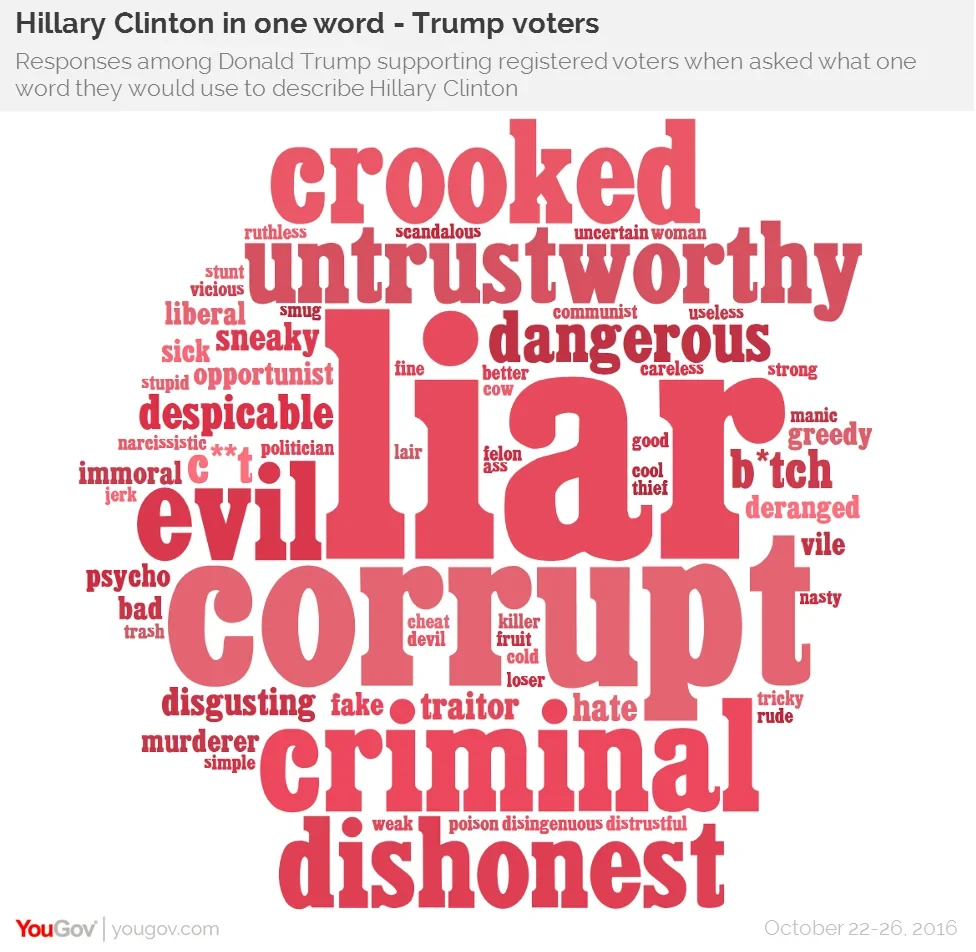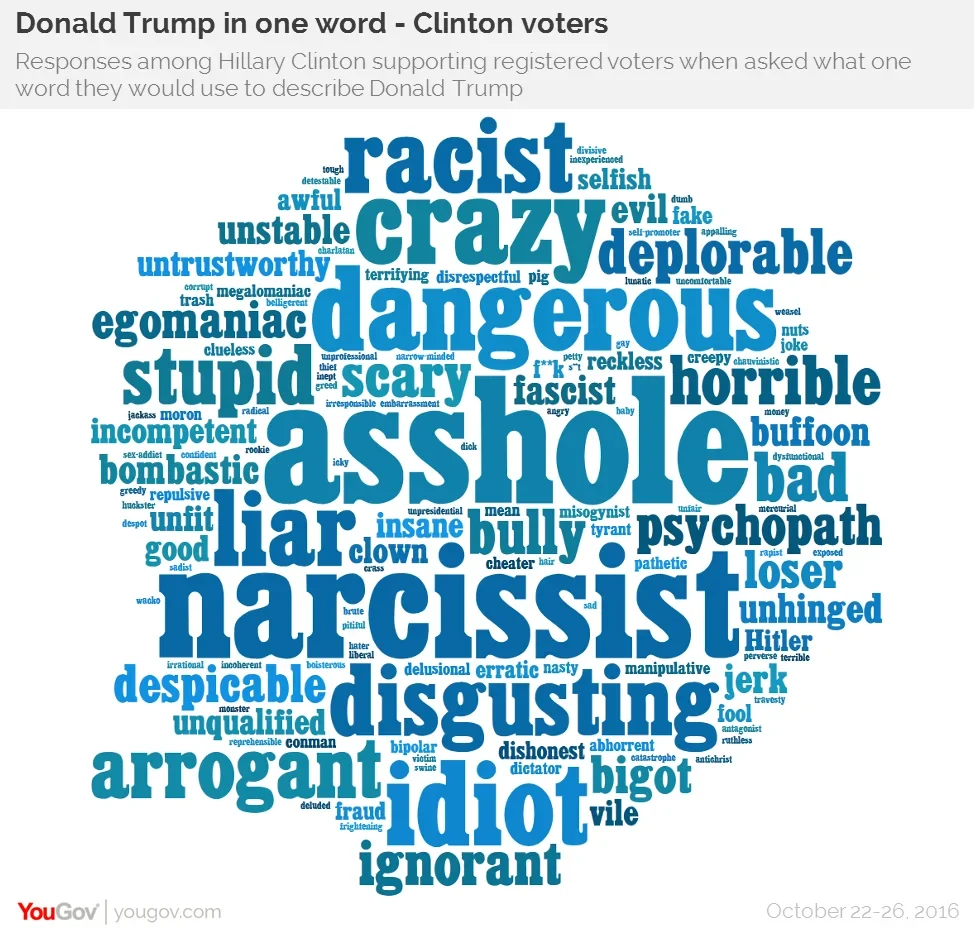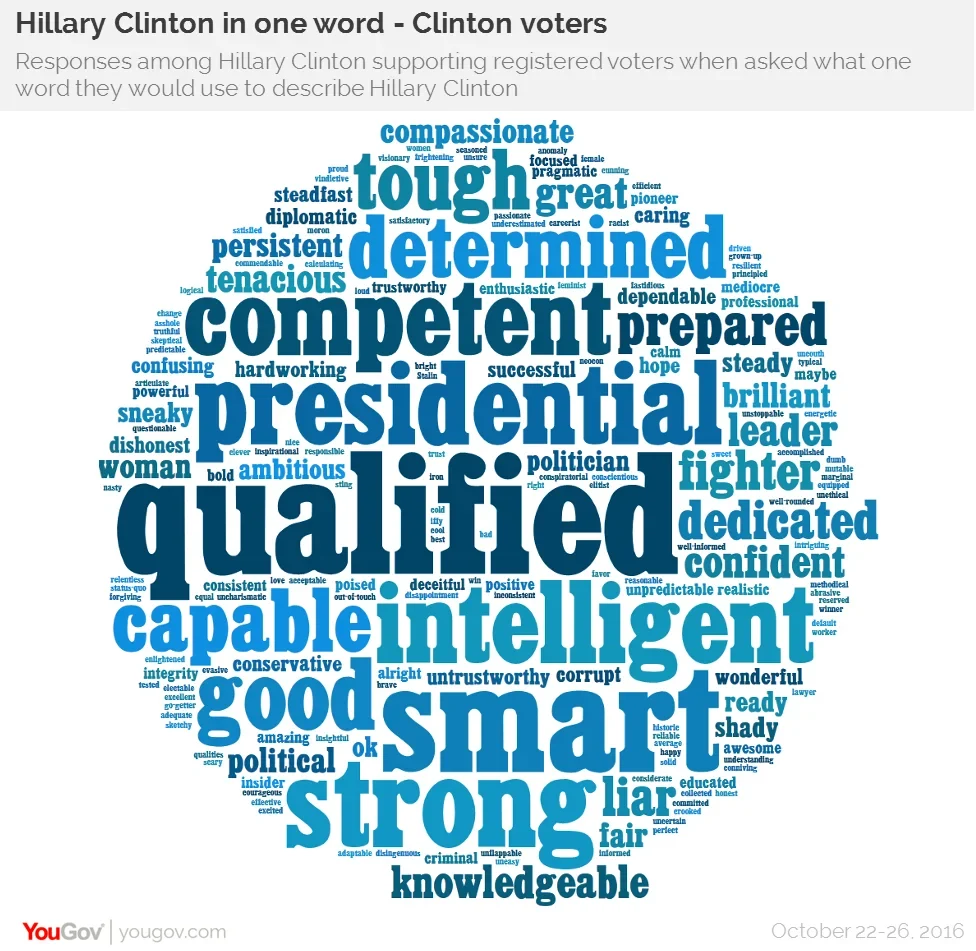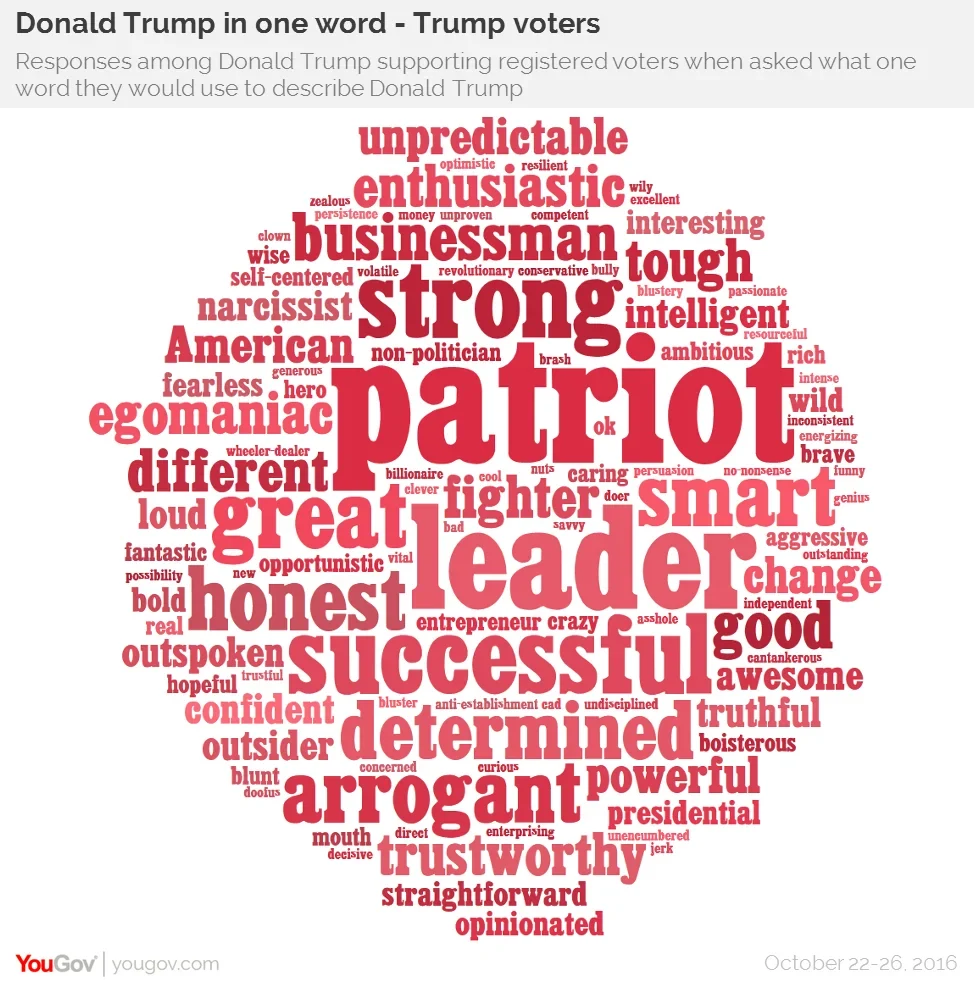Trump voters' favorite word for Clinton is 'liar', while one of Clinton voters' top words for Trump is 'narcissist'
Campaigns can change the way voters look at candidates, taking characteristics that voters generally believe and turning them into campaign labels. The latest Economist/YouGov Poll demonstrates how this works – especially when it comes to voters who don’t like a candidate.
GOP presidential nominee Donald Trump’s labelling of his Democratic rival as “crooked Hillary” has certainly caught on with his voters. Asked to describe Hillary Clinton in one word, “crooked” and “corrupt” emerge as popular answers among Trump supporters, although “liar” remains the most common epithet, as it overwhelmingly was earlier this year, when Republican primary voters were asked to describe Clinton.

The power of words like “dishonest,” “untrustworthy,” “corrupt” and “crooked” to describe Clinton underscore her major weaknesses: in the latest Economist/YouGov poll, just 30% of likely voters say she is honest and trustworthy. Only 3% of Trump supporters think that. And 57% of likely voters (95% of those now favoring Trump) say they would use the term “corrupt” to describe Clinton.
Trump fares not much better than Clinton on these two questions, however: 37% of likely voters think he is honest and trustworthy, and nearly half, 47%, would call him corrupt. But Trump’s image with Clinton voters is based on other criticisms. And the greater variety of words used to describe Trump by Clinton supporters today matches the variety of negative words used about Trump by Democratic primary voters back in February.

Although there has been no single campaign adjective used by the Clinton campaign to describe the Republican nominee (unlike the “crooked Hillary” theme of the Trump campaign), the appearance of the word “deplorable” to describe Trump by some Clinton voters suggests her campaign statements campaign have had at least some effect, even though the negative assessments OF Trump have not changed much in the campaign.
Among all likely voters in this week’s poll, 57% describe Trump as “dangerous” when asked directly. 93% of Clinton supporters said this. 55% of likely voters believe Trump is not qualified to be President, a characteristic that has been a Clinton strength al year. 82% of African-Americans think Trump is racist. And as recently as a few weeks ago, half of registered voters (and 83% of Clinton supporters) described as “crazy.”
For both candidates, there also are words opponents use that are not spelled out in full in the word clouds.
“Qualified” remains a big part of Clinton’s appeals to her own voters. For Trump, strength, toughness and patriotism are popular. But in an election where many as voting against and not for a candidate, there are negative words as well in the descriptors supporters give about the person they plan to cast a ballot for.

Reputations of those who are not the candidates themselves can also be affected by campaigns. Half of Trump supporters now have an unfavorable view of Republican Speaker of the House of Representatives Paul Ryan, who has not campaigned with or enthusiastically supported Trump. 54% of Trump voters disapprove of how Ryan is handling his job, and 52% call Ryan a weak leader.

Former President Bill Clinton’s evaluation have not been helped by the campaign. 52% of likely voters hold unfavorable views of President Clinton, who left office as one of the most popular Presidents ever. And while in 1998 and 1999, Americans told CBS News that his interactions with Monica Lewinsky were a private matter, not a public one, now they take the opposite position. Even 52% of Clinton supporters believe this.
Today, voters are divided on whether Donald Trump’s relationships – whatever they were – with his women accusers are a private matter or something affecting his ability to do the job of President. While men and women generally agree in their evaluations of Clinton and Lewinsky, women are more likely than men to say Trump’s behavior is a public matter.









